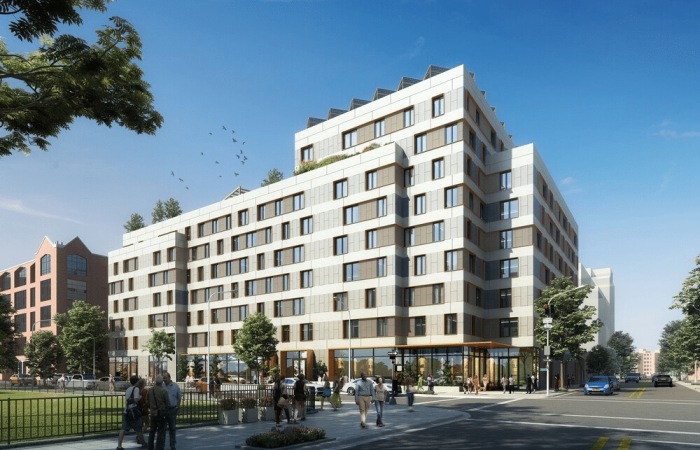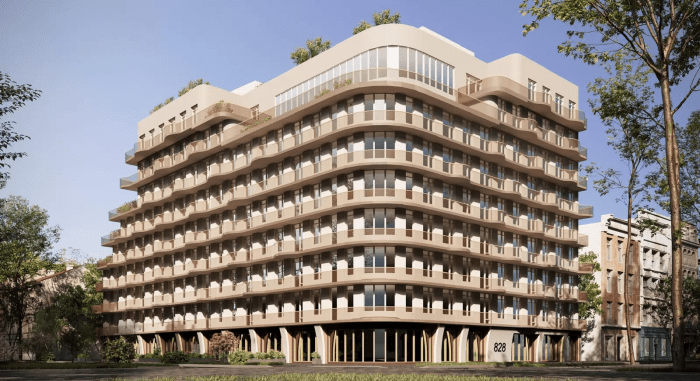Gov. Paterson signed legislation on Monday to require illegally converted loft buildings to get up to code — a move that could make such residences safer, but at the same time could result in higher rents that will push out Williamsburg’s artists and the industries they live near.
The bill, known as the Loft Law, will extend rental protections to tenants living in the illegal apartments in former factories and warehouses in manufacturing zones in Greenpoint, Williamsburg, Bushwick, and Maspeth.
As such, the bill’s champions heralded it as victory for tenants.
“Loft tenants finally have the peace of mind and protections that they deserve,” said Assemblyman Vito Lopez (D-Williamsburg), who worked on the bill for 10 years. “Loft tenants have greatly enriched our community, so to pass legislation that provides these tenants both rent regulation and the ability to continue to work freely in their residences is a significant victory in all respects.”
But such protection comes at a price, opponents say. Manufacturers and their supporters fear that they will be further displaced by a new wave of conversions and subsequent gentrification when landlords pass along the cost of their building renovations in the form of higher rents.
“We lost,” said Leah Archibald, executive director of the East Williamsburg Valley Industrial Development Corporation, a group that works to preserve manufacturing jobs. “Over time, this will have a very deleterious effect on our ability to retain working-class jobs in our community.”
Mayor Bloomberg agrees. As the passed bill was making its way to Paterson’s desk, the mayor sent a last-minute plea to the governor urging a veto on the grounds that the bill would “send a clear and discouraging message” to industrial tenants looking to settle in the city by prioritizing residential ones.
“Residential uses, even illegal and unsafe ones, pay far higher rents than, and place enormous economic and political pressure on, industrial and manufacturing uses,” said Bloomberg. “Ultimately, the encroachment of residential uses in these areas will force businesses to relocate and, in many cases, leave the city altogether, along with the good-paying jobs and economic diversity that they support.”
After a shouting match — caught on camera! — between Lopez and a Bloomberg Administration lobbyist, a compromise was reached that carved out 13 of the city’s industrial business zones from the law. But the three zones in Lopez’s district will be covered by the law.
That concession to Lopez infuriated his biggest rival, Councilwoman Diana Reyna (D–Bushwick).
“We’re talking about 15,000 workers, prevailing wages, union jobs,” said Reyna. “We’re talking about shaping my district … to his [Lopez’s] will. He controls the seat, he controls the land, and he controls the resources. That’ s a direct exploitation of power.”
Beyond the politics, some artists were concerned because the bill allows landlords to hike rents by thousands after making major improvements to their buildings.
Laura Braslow, who organized Bushwick Open Studios with 300 artist studios two weekends ago, wanted lawmakers to establish a cap for the maximum amount that rents can increase over a unit’s original lease price and keep units under rent stabilization regardless of how much the rent increases. If four tenants living in a unit earn an average income of $45,000 per year, they would not be eligible for these protections.
“The issue is that you’re giving landlords a benefit to get them legal,” said Braslow. “Rents are going to increase when construction costs are incorporated, which is a long-term benefit to the landlord. If the increase is capped, a larger number of people will be able to afford those leases.”
The law could even pit artists against industry in North Brooklyn. Already, the owners of Wonton Foods and Greenfield Clothiers are reporting an increase in the number of noise complaints from tenants in nearby converted buildings over their early morning factory shifts.
“Someone moved into a building next to my factory and I have a vacuum pump running which we turn it on when we start work at 7 am,” said Vice President Tod Greenfield. “They were illegal residents, now they could become legal, and I may have to limit my operations to start at a later hour if there are legal residents next door.”
Archibald agreed that a change is coming — and not a good one.
“The real artists can say goodbye,” she said. “They will have to go out and colonize another neighborhood. They’re going to lose cheap studio space with the relentless onslaught of gentrification over time.”
























